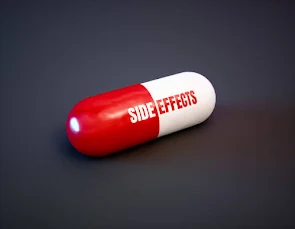Introduction:
Welcome to Skilltik's course on how to safe handling of medicines! This course will give you the skills and information you need to make sure medicines are given safely, whether you are a healthcare worker, a helper, or just someone who wants to learn more.
What is Safe Handling of medications ?
The point of medicines is to make you healthy, but if you don't use them right, they can make you very sick. Medication safety means keeping, giving, and getting rid of medicines in the right way so that bad things don't happen by accident.
Why is medication safety important?
Taking medicines can be a big part of getting better or controlling a lot of health problems. However, if you don't take them right:
- They might not work;
- You might be wasting time and money on medicines;
- They might have bad side effects that you don't want.
Knowing what medicines you're taking and being able to talk to your doctors and nurses clearly are important parts of using medicines properly.
Medications and active ingredients
- Generic name : Which is the name of the medicine's main component.
- Brand name: That comes from the company that makes the medicine.
An active ingredient is what makes the medicine work and is the reason you take it. A lot of different things can be in medicines, but there is always at least one active ingredient.
You can tell how strong a drug is by how much of the active ingredient it has in each pill or capsule. On the medicine's package, the name and amount of the active ingredient are always written.
Medications and side effects
Usually, a doctor prescribes a drug to have a certain effect on the body. Side effects are effects that you don't want or didn't mean to happen. Side effects can be very mild and hard to notice, or they could be so bad that they could kill you. Side effects are possible with all medicines, but not everyone who takes them will definitely have them.
You should always talk to your healthcare workers, especially your doctor and chemist, about any possible side effects of any medicines you are taking. They can talk about:
What sorts of side effects a drug might have;
- How often different side affects happen when taking the medicine;
- How bad the side effects might be;
- Anything you might need to do to lessen or avoid side effects;
- How long the side effects might last and whether they get better or worse over time
- What you need to do if a certain side effect happens.
The most prevalent and significant adverse effects are listed below.
Following instructions with medications
Make sure you understand your doctor's instructions to take drugs effectively.
For oral medications:
- You may need to take these with meals to avoid stomach irritation;
- To ensure proper absorption, take these on an empty stomach;
- You may need to break or crush the pill to consume it, or
- Breaking or crushing the tablet may render it ineffective.
Some drugs need particular applicators or methods to work. Many asthma treatments need inhalers and spacers to get them to the lungs. Eye drops may require careful handling to stay in the eyes and not flow into the nasal passages.





.jpg)


No comments:
Post a Comment